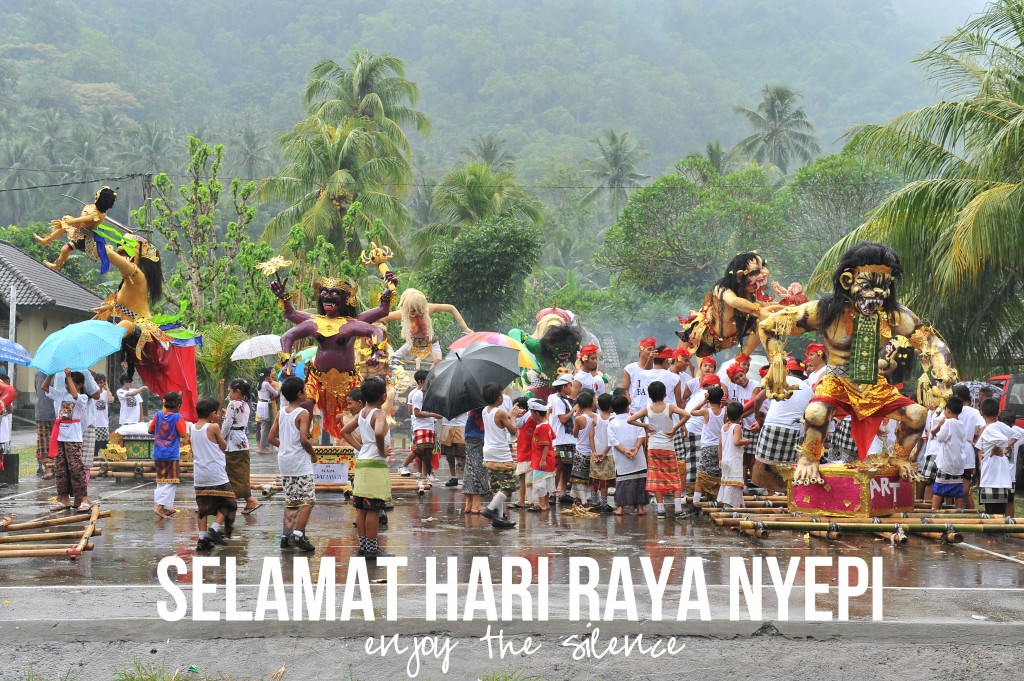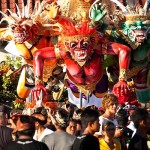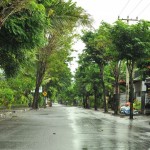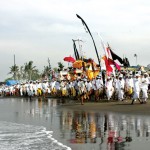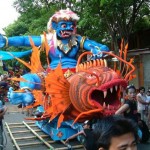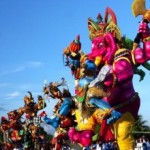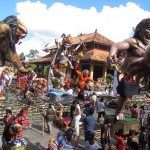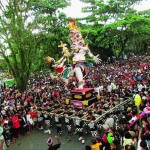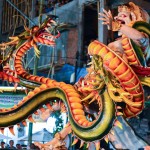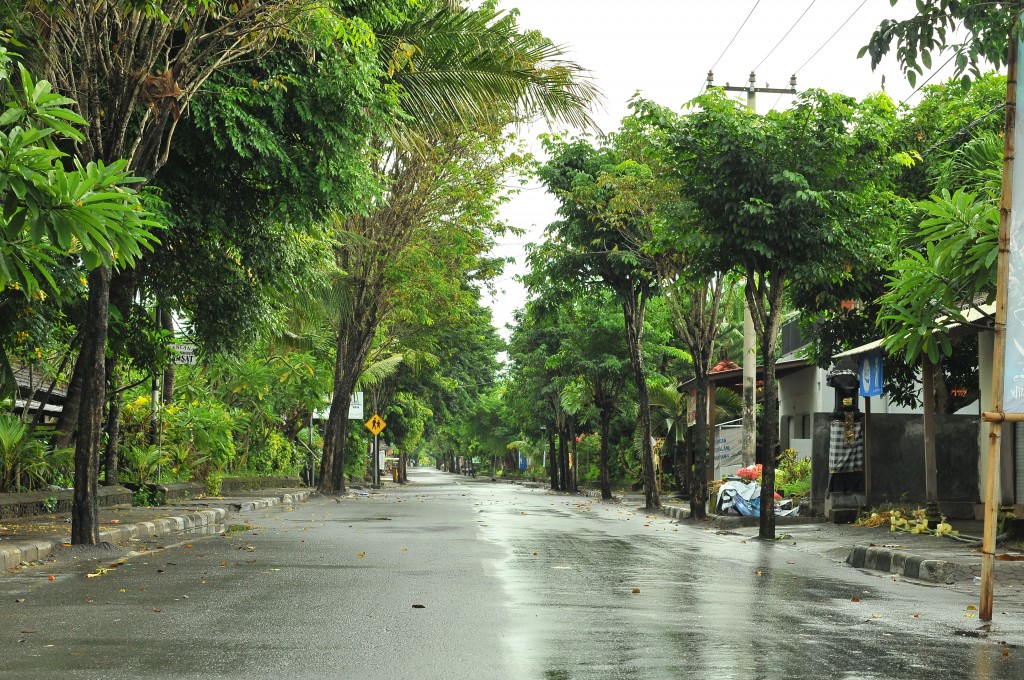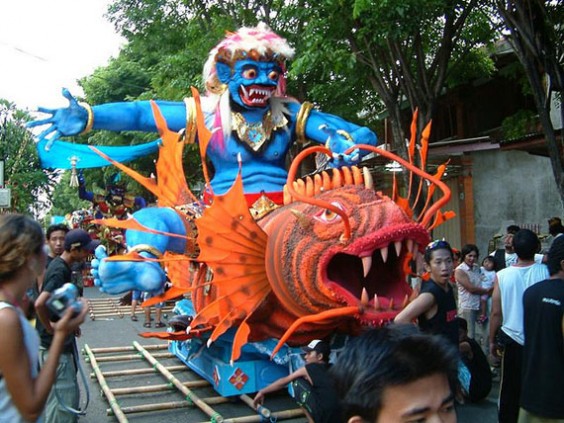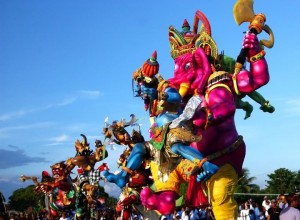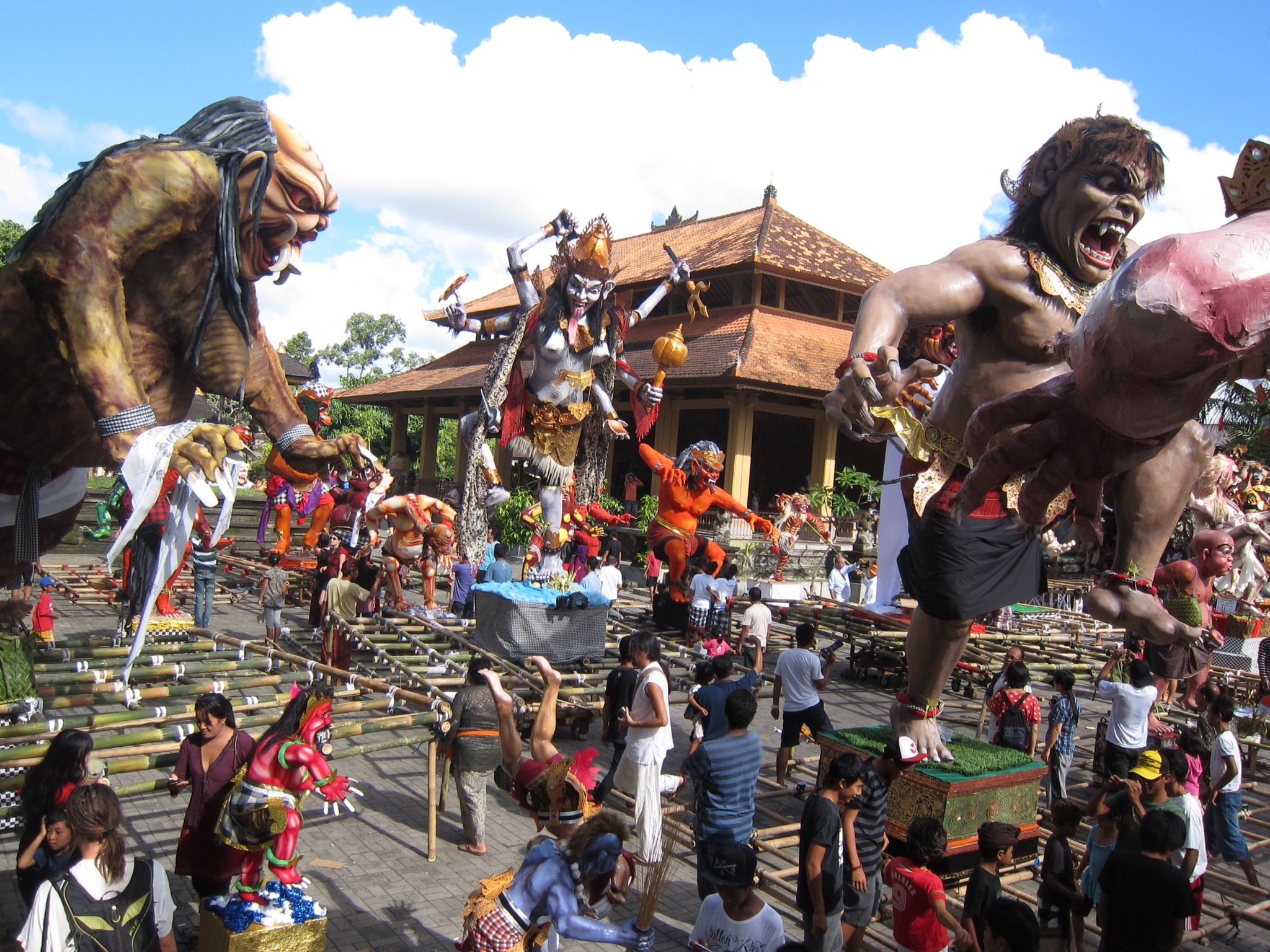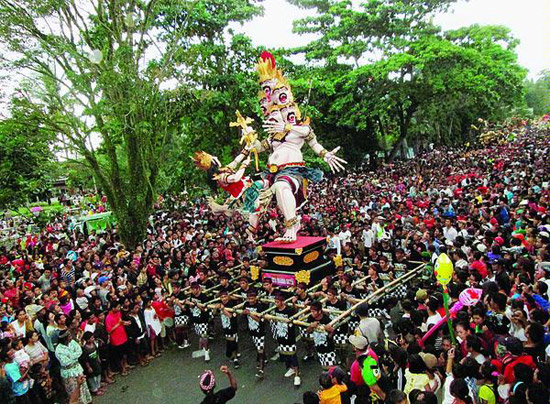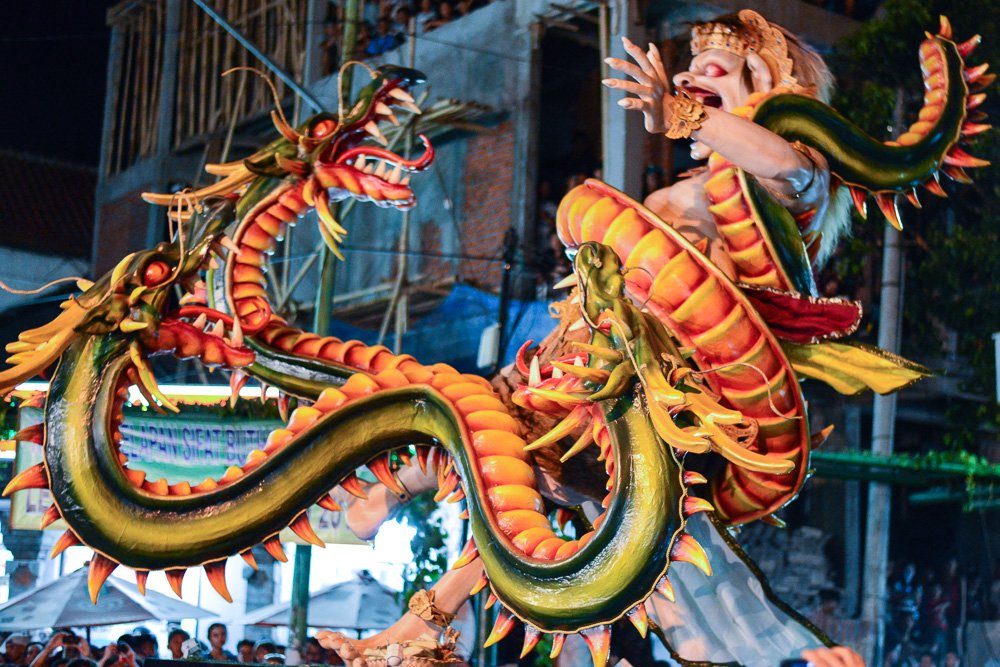Nyepi Day in Bali is a New Year’s celebration unlike anywhere else on the planet. Also known as Bali’s celebration of the Saka New Year and the Bali Day of Silence, it is ultimately the quietest day of the year, when all of its inhabitants abide by a set of local rules that brings all routine activities to a complete halt. The roads all over Bali are void of any traffic and nobody steps outside of his or her home premises.
The Balinese Hindus follow a ritual called the Catur Brata Penyepian, roughly the ‘Four Nyepi Prohibitions’. These include amati geni or ‘no fire’, amati lelungan or ‘no travel’, amati karya ‘no activity’, and amati lelanguan ‘no entertainment’. Some consider it a time for total relaxation and contemplation, for others, a chance for Mother Nature to ‘reboot’ herself after 364 days of human pestering. No lights are turned on at night – total darkness and seclusion goes along with this new moon island-wide, from 06:00 to 06:00.
No motor vehicles whatsoever are allowed on the streets, except ambulances and police patrols and emergencies. As a hotel guest, you are confined to your hotel premises, but free to continue to enjoy the hotel facilities as usual. Traditional community watch patrols or pecalang enforce the rules of Nyepi, patrolling the streets by day and night in shifts.
The lead upto Nyepi day is as follows:
- Melasti or Mekiyis or Melis (three days before Nyepi)
Melasti is meant to clean the pratima or arca or pralingga (statue), with symbols that help to concentrate the mind in order to become closer to God. The ceremony is aimed to clean all nature and its content, and also to take the Amerta (the source for eternal life) from the ocean or other water resources (ie lake, river, etc). Three days before Nyepi, all the effigies of the Gods from all the village temples are taken to the river in long and colourful ceremonies. There, they have are bathed by the Neptune of the Balinese Lord, the God Baruna, before being taken back home to their shrines.
- Tawur Kesanga (the day before Nyepi)
Exactly one day before Nyepi, all villages in Bali hold a large exorcism ceremony at the main village cross road, the meeting place of demons. They usually make Ogoh-ogoh (the fantastic monsters or evil spirits or the Butha Kala made of bamboo) for carnival purposes. The Ogoh-ogoh monsters symbolize the evil spirits surrounding our environment which have to be got rid of from our lives . The carnivals themselves are held all over Bali following sunset. Bleganjur, a Balinese gamelan music accompanies the procession. Some are giants taken from classical Balinese lore. All have fangs, bulging eyes and scary hair and are illuminated by torches.The procession is usually organised by the Seka Teruna, the youth organisation of Banjar. When Ogoh-ogoh is being played by the Seka Teruna, everyone enjoys the carnival. In order to make a harmonic relation between human being and God, human and human, and human and their environments, Tawur Kesanga is performed in every level of society, from the people’s house. In the evening, the Hindus celebrating Ngerupuk, start making noises and light burning torches and set fire to the Ogoh-ogoh in order to get the Bhuta Kala, evil spirits, out of our lives.
- Nyepi
On Nyepi day itself, every street is quiet – there are nobody doing their normal daily activities. There is usually Pecalangs (traditional Balinese security man) who controls and checks for street security. Pecalang wear a black uniform and a Udeng or Destar (a Balinese traditional “hat” that is usually used in ceremony). The Pecalangs main task is not only to control the security of the street but also to stop any activities that disturb Nyepi. No traffic is allowed, not only cars but also people, who have to stay in their own houses. Light is kept to a minimum or not at all, the radio or TV is turned down and, of course, no one works. Even love making, this ultimate activity of all leisure times, is not supposed to take place, nor even attempted. The whole day is simply filled with the barking of a few dogs, the shrill of insect and is a simple long quiet day in the calendar of this otherwise hectic island. On Nyepi the world expected to be clean and everything starts anew, with Man showing his symbolic control over himself and the “force” of the World, hence the mandatory religious control.
- Ngembak Geni (the day after Nyepi)
Ngembak is the day when Catur Berata Penyepian is over and Hindus societies usually visit to forgive each other and doing the Dharma Canthi. Dharma Canthi are activities of reading Sloka, Kekidung, Kekawin, etc.(ancient scripts containing songs and lyrics).
From the religious and philosophy point of view, Nyepi is meant to be a day of self introspection to decide on values, eg humanity, love, patience, kindness, etc., that should kept forever. Balinese Hindus have many kind of celebrations (some sacred days) but Nyepi is, perhaps the most important of the island’s religious days and the prohibitions are taken seriously, particularly in villages outside of Bali’s southern tourist belt. Hotels are exempt from Nyepi’s rigorous practices but streets outside will be closed to both pedestrians and vehicles (except for airport shuttles or emergency vehicles) and village wardens (Pecalang) will be posted to keep people off the beach. So wherever you happen to be staying on Nyepi Day in Bali, this will be a good day to spend indoors. Indeed Nyepi day has made Bali a unique island.




